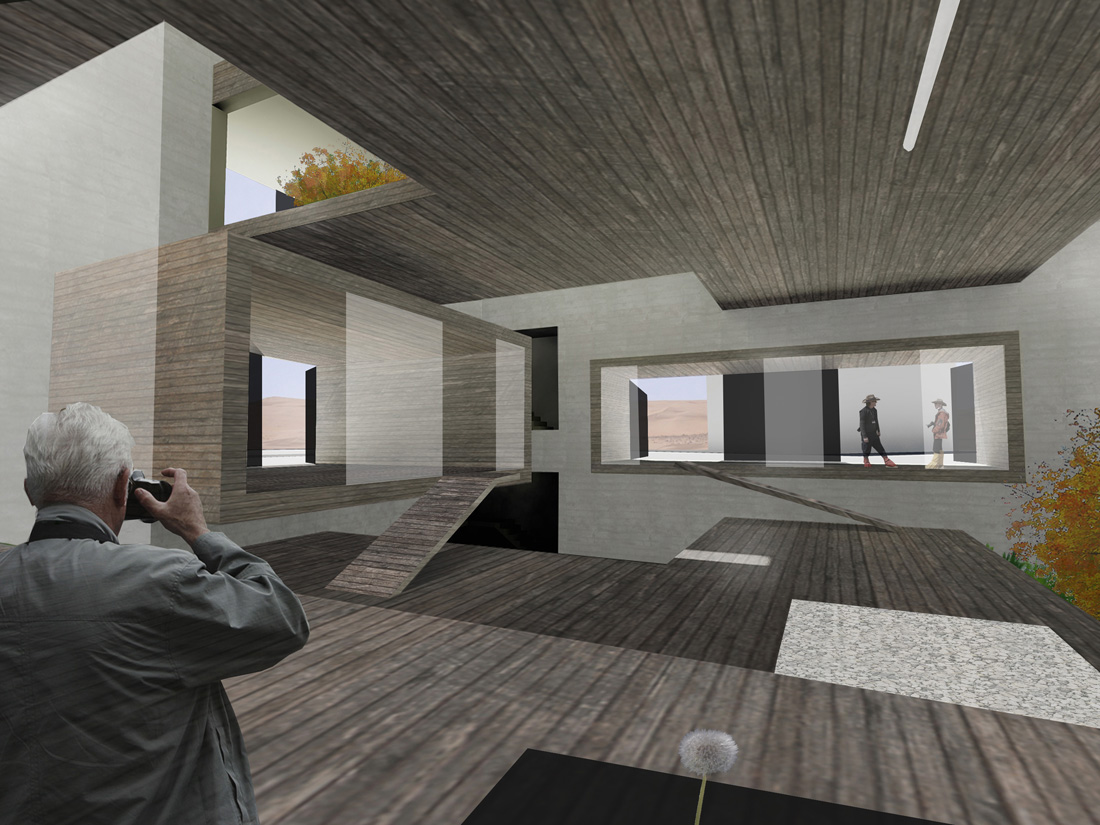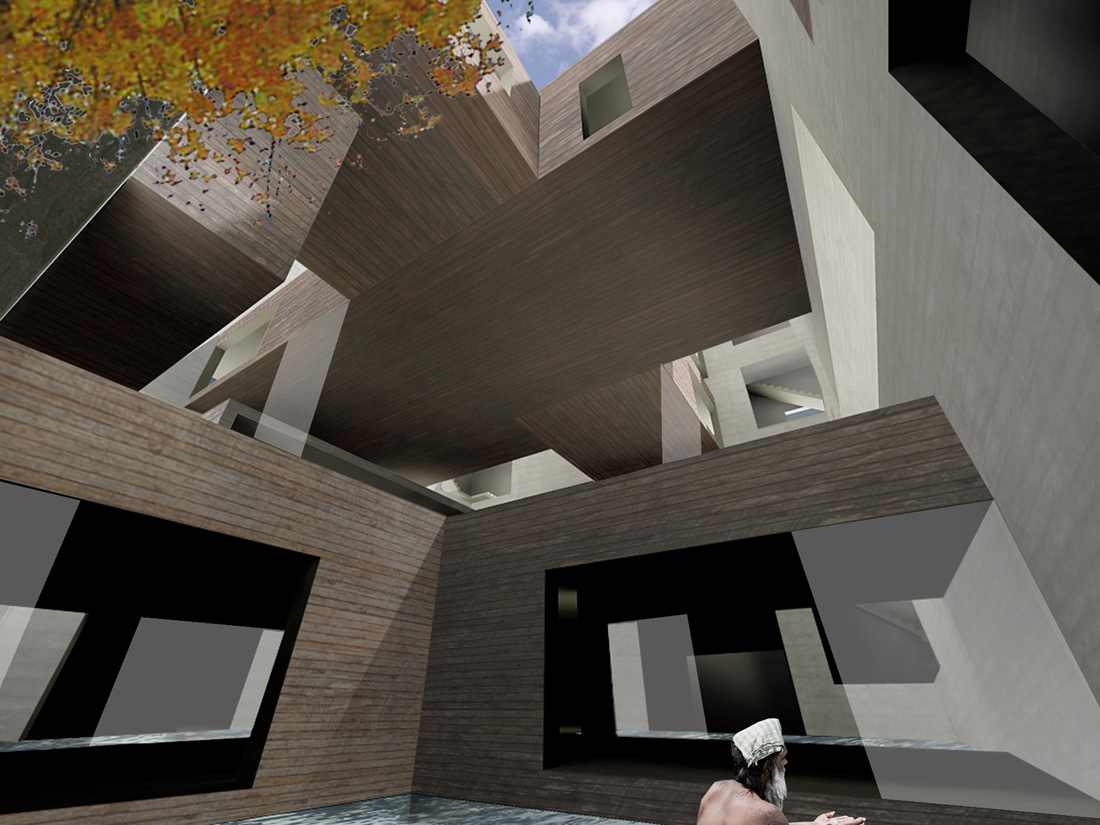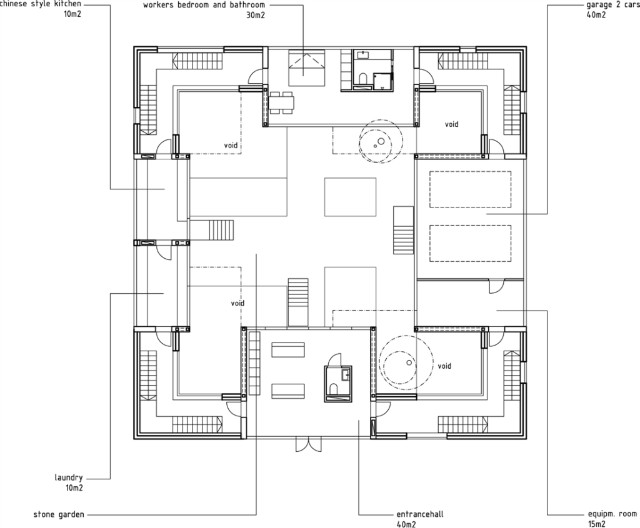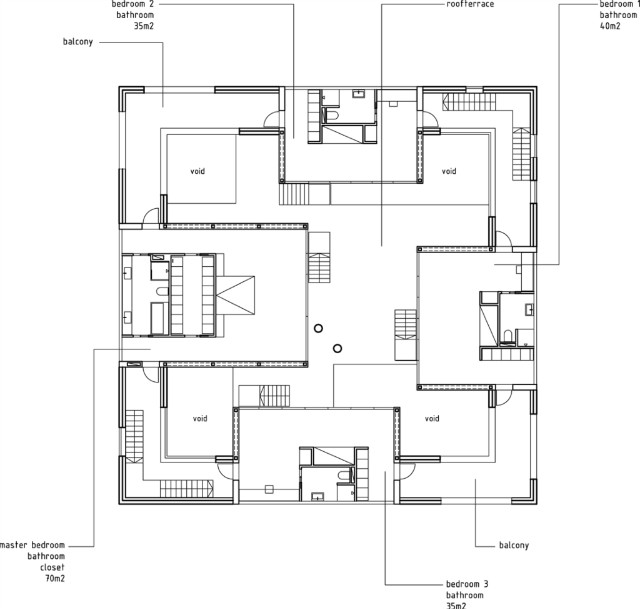728x90

Location: Ordos, Inner Mongolia, China
Design year: 2008
Construction year: 2009
Curator: Ai Weiwei, Beijing, China
Client: Jiang Yuan Water Engineering Ltd, Inner Mongolia, China
Constructed Area: 1,170 sqm





SITUATION
The landscape of the Ordos plateau in Inner Mongolia is wide and open, characterized by dunes of sand and low vegetation. The climate is stable and dry, with only 200-450 mm of annual rainfall, which has made livelihood in the area a great challenge throughout the centuries. Still today, the land is threatened by droughts, erosion of the soil and desertification. Loss of land to desert equals 3.600 m2 per year.
PROJECT
In our project, we have focused on these environmental factors and tried to create a micro-cosmos on our site, with opposite conditions from the situation on the outside, like an oasis in the Ordos desert.
The project is composed of two spatial systems:
The WALL; functioning as a wind barrier, creating good micro-climate for the inhabitants of the building and taking care of vertical and horizontal movement through the building. The wall surrounds an inner courtyard with 3 storeys above ground level and 1 storey below.
The BOXES; functioning as containers for living, eating, sleeping and leisure activities, as well as quarters for the workers. As containers of the room programme, the boxes are placed in a vertical order according to the need for daylight and privacy. Leisure activities are thus placed in the basement, entrance hall and workers spaces are on the ground floor, the living- / dining-rooms are on the 1st floor and the bedrooms are placed on the top floor, providing as much privacy as possible within the building. The boxes are positioned horizontally to form a dynamic relationship to each other. Functions requiring a good flow of movement between each other connect in the middle, forming space which opens up in all four directions. Separate functions like the bedrooms are formed as independent entities and placed as singular objects in the wall, cantilevering into to the courtyard.
Together these spatial systems form a small three-dimensional village, with a logical circulation structure, good daylight conditions and possibilities for a well functioning method of natural ventilation.
LANDSCAPING
The site offers good possibilities of creating good outside areas for recreation. The soil is not very fertile, and we have planned to look at those issues in the second phase of the project. On the inside of the courtyard however, we want to suggest a three dimensional landscape, divided onto three thematic levels:
Water is naturally found on low levels and under ground and therefore finds its position on the lowest level - the basement.
Grass, shrubs and trees will be placed in a “stone garden” on the entrance level of the building - on top of the basement areas, as an extension to the surrounding landscape.
Terrace will be placed on top of the living room spaces, as a final point of the journey. This area is exposed with fresh air and sunlight.
SITE
The main entrance to the plot is from a secondary street on the west side. According to the master plan, the building mass should be located on the north-east end of the site, protecting the inhabitants from sound-/noise pollution coming from the main road, and leaving as much sunlight to the rest of the site as possible. Although the building has a bigger footprint than what is shown on the master plan, we have maintained the original position in our proposal. There are two deviations however: Our building is tilted approximately 6 degrees from the master plan, and the entrance to the site has been moved from the North end of the site towards the south end. This has been agreed upon with our neighbours on the surrounding parcels.










from archdaily
그리드형
'REF. > Architecture' 카테고리의 다른 글
| [ EM2N ] Public Records Office Canton Basel-Landschaft (0) | 2009.02.06 |
|---|---|
| [ LAN Architecture ] Marchesini Headquarters (0) | 2009.02.05 |
| [ Jorge Hernandez de la Garza ] Suntro House (0) | 2009.02.04 |
| [ SoftRigid ] bookshelf_08 (0) | 2009.02.04 |
| [ Arons & Gelauff Architects ] Dormitory (0) | 2009.02.04 |